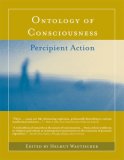These are books on consciousness published in 2008, selected from WorldCat, which means they are in some library’s collection:
The Achilles of Rationalist Psychology (Studies in the History of Philosophy of Mind) ed. by Thomas M. Lennon and Robert J. Stainton (Springer, 2008)
In his Second Paralogism of the Critique of Pure Reason, Kant described what he called the “Achilles of all dialectical inferences in the pure doctrine of the soul.” This argument, which he took to be powerful yet fatally flawed, purports to establish the simplicity of the human mind, or soul, on the basis of the unity of consciousness. In Kant�s illustration, the unity had by our perception of a verse cannot be accounted for if the words of the verse are distributed among parts thought to compose the mind. The argument, or at least the unity of consciousness that underpins it, has a history extending from Plato to the present. Moreover, many philosophers have extended the argument, some of them using to argue such views as immortality.
It is the aim of this volume to treat the major figures who have advanced the argument, or who have held views importantly bearing on it. Original essays by scholars with expertise on the relevant authors treat Plato, Aristotle, the Neoplatonists, the medievals, Descartes, Locke, Cudworth, Bayle, Clarke, Spinoza, Leibniz. Hume, Mendelsohn, Kant, Lotze, James, as well as those working in contemporary cognitive science on what is called the binding problem of how the human brain can unify the elements of experience into a single representation.
Consciousness Transitions: Phylogenetic, Ontogenetic and Physiological Aspects ed. by Hans Liljenström and Peter Århem (Elsevier Science, 2008)
It was not long ago when the consciousness was not considered a problem for science. However, this has now changed and the problem of consciousness is considered the greatest challenge to science. In the last decade, a great number of books and articles have been published in the field, but very few have focused on the how consciousness evolves and develops, and what characterizes the transitions between different conscious states, in animals and humans. This book addresses these questions. Renowned researchers from different fields of science (including neurobiology, evolutionary biology, ethology, cognitive science, computational neuroscience and philosophy) contribute with their results and theories in this book, making it a unique collection of the state-of-the-art of this young field of consciousness studies.
Developmental Perspectives on Embodiment and Consciousness (Jean Piaget Symposia Series) ed. by Willis F. Overton, Ulrich Müller, and Judith L. Newman (Lawrence Erlbaum, 2008)
This latest volume in the Jean Piaget Society Symposia Series illustrates different ways in which the concept of embodiment can be used in developmental psychology and related disciplines. It explores the role of the body in the development of meaning, consciousness, and psychological functioning. The overall goal is to demonstrate how the concept of embodiment can deepen our understanding of developmental psychology by suggesting new possibilities of integrating biological, psychological, and socio-cultural approaches….
MindReal: How the Mind Creates its Own Virtual Reality by Robert Ornstein (Malor Books, 2008)
This is a book that shows, in simple detail, one of the most startling findings of modern science: We don’t experience the world as it is, but as virtual reality. And while much of the latest scientific work demonstrates this, as do many of the classical psychological illusions, it is an important meeting point for students of the mind, brain, philosophy and religion because, as we can now see in light of this book, all these disciplines begin at the same place.
This is not an abstruse treatise, but part graphic novel and part direct address. It allows the reader a breakthrough understanding of the mind which is not available anywhere else. It is, in part, a summa of Dr. Ornstein’s research and writing of the past 35 years (with pieces and references to many of his works) as well as a seminal introduction to new readers.
The Reflexive Nature of Consciousness (Advances in Consciousness Research) by Greg Janzen (John Benjamins Publishing Co., 2008)
Combining phenomenological insights from Brentano and Sartre, but also drawing on recent work on consciousness by analytic philosophers, this book defends the view that conscious states are reflexive, and necessarily so, i.e., that they have a built-in, “implicit” awareness of their own occurrence, such that the subject of a conscious state has an immediate, non-objectual acquaintance with it. As part of this investigation, the book also explores the relationship between reflexivity and the phenomenal, or “what-it-is-like,” dimension of conscious experience, defending the innovative thesis that phenomenal character is constituted by the implicit self-awareness built into every conscious state. This account stands in marked contrast to most influential extant theories of phenomenal character, including qualia theories, according to which phenomenal character is a matter of having phenomenal sensations, and representationalism, according to which phenomenal character is constituted by representational content.




